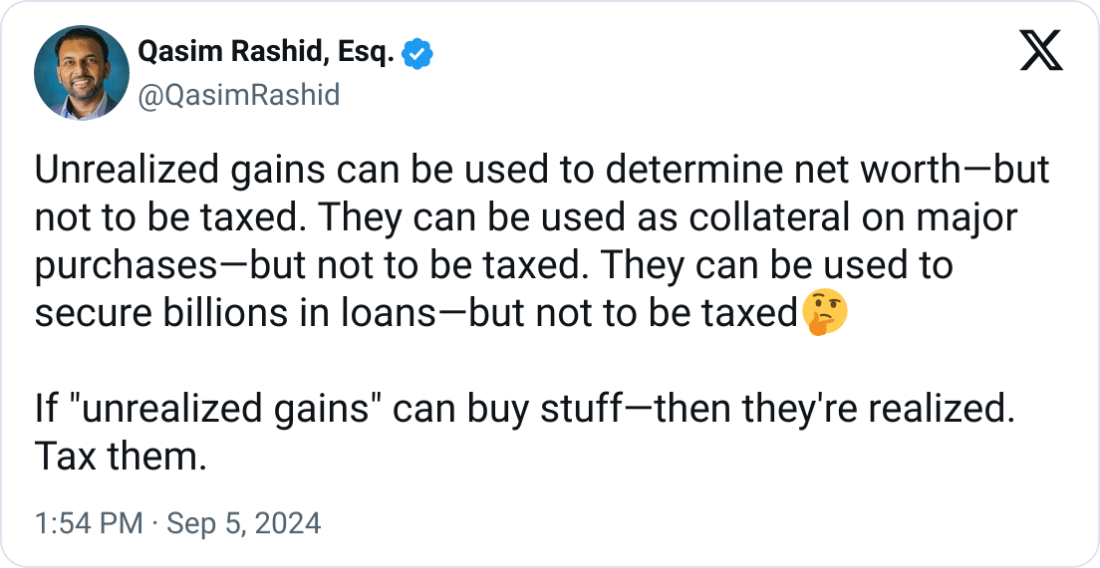this post was submitted on 19 Sep 2024
1598 points (96.8% liked)
Microblog Memes
7605 readers
1589 users here now
A place to share screenshots of Microblog posts, whether from Mastodon, tumblr, ~~Twitter~~ X, KBin, Threads or elsewhere.
Created as an evolution of White People Twitter and other tweet-capture subreddits.
Rules:
- Please put at least one word relevant to the post in the post title.
- Be nice.
- No advertising, brand promotion or guerilla marketing.
- Posters are encouraged to link to the toot or tweet etc in the description of posts.
Related communities:
founded 2 years ago
MODERATORS
you are viewing a single comment's thread
view the rest of the comments
view the rest of the comments

Could you explain what you mean? This isn't about shorting into bankruptcy.
This is about you buying a stock in a company and it goes up like crazy (Game Stop). You now owe thousands in taxes that year. The next year it goes down to less than you paid and you need to sell the stock. You paid taxes for losing money
Investors short a company. As the value drops, the value of the short increases. When the company goes bankrupt, the short play reaches full value, since it costs 0 to buy the shares. It also means that gain is unrealized and has permanent value until the short is exercised, which they never do because it's a taxable event.
That has absolutely nothing to do with buying a stock, it goes up crazy for a year. Then you owe a huge tax bill despite the stock being worthless the next year when you need to sell it.
Thousands of companies go up one year and go down the next. They aren't bankrupt.
That's an unrealized gain to the tax man, but a bank won't loan you money against it, because like you said, it could drop to zero. If you hold a short position in a company that goes bankrupt then there's no mechanism for the value to drop after that point. It's a glitch in the market that can be exploited, if you're rich enough.
I still don't understand why you are bringing up the rare case of a company going bankrupt and shorting the stock?
MSFT was $28 in 1998, $58 in 2000 and back to $28 in 2001. You'd have paid capital gains tax for 3 years despite making $0 capital gains and taking $0 losses. There's no bankruptcy.